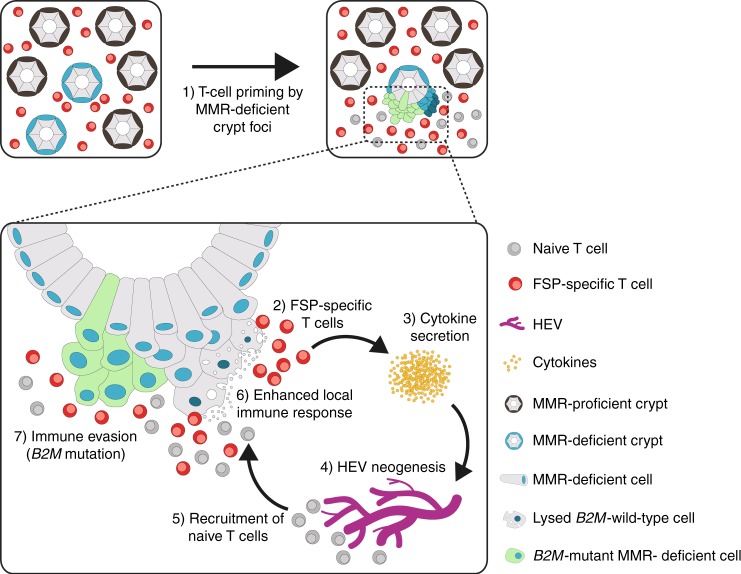Fig. 5.
Graphical summary. Model of auto-immunisation loop in Lynch syndrome. In Lynch syndrome, the host immune system can be primed against FSP neoantigens by precursor lesions, MMR-deficient crypts, existing in the normal colonic mucosa long before tumour manifestation. Recurrent exposure of the immune cells to FSP neoantigens expressed in MMR-deficient crypts leads to the generation of an FSP-specific T-cell pool. When a tumour arises, FSP-specific T cells can promptly recognise the FSP neoantigens expressed on the tumour cells and release cytokines, which could induce neogenesis of HEVs. New HEVs, in turn, can recruit more naive T cells, which would undergo maturation through exposure to the neoantigens into FSP-specific T cells. Newly formed FSP-specific T cells release more cytokines, potentially leading to generation of more HEVs. This self-amplifying loop keeps MSI tumour cells under constant immune pressure and promotes selection and outgrowth of cell clones lacking antigen expression via MHC class I via acquisition of B2M mutations, enabling immune escape. Thereby, HEVs can contribute to immunoediting of MSI tumour cells.

